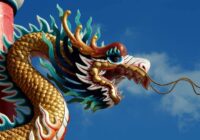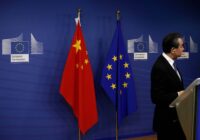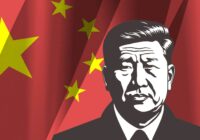When people are afraid, they want to know as much as possible about the nature of the object of their fear. It would be fair to say that at this particular moment of history, all of humanity is at least curious and, in many cases, obsessed about understanding how the novel coronavirus known as COVID-19 spreads, how it affects humans and how we, as its intended victims, may escape its ravages.
As scientific and medical researchers focus on developing both the tests and vaccines that have been sorely lacking, others are attempting to understand how the contagion erupted in Wuhan, China, at the end of 2019 and began to spread. This is a global effort that has mobilized the experts of many countries.
How the Middle East Reacts to the Coronavirus Pandemic
The Chinese are clearly the best placed to engage in intensive research intended to clarify the origins of COVID-19. They also have an interest in controlling that research. With a note of alarm, CNN now reports that “Chinese authorities appear to be tightening their grip on the publication of [COVID-19] research.” The article calls it “a worrying development that would likely obstruct important scientific research” and “the latest effort by the Chinese government to control the narrative on the origins of the coronavirus pandemic.”
CNN quotes a Chinese researcher who requested anonymity to suggest that the Chinese government may be interfering with the noble Western commitment to the unvarnished truth. “I think … the international scientific community must realize that any journal or manuscripts from (a) Chinese research institution has kind of been double-checked by the government,” the researcher said. “It is important for them to know there are extra steps between independent scientific research and final publication.”
Here is today’s 3D definition:
Independent scientific research:
A largely imaginary type of idealized human activity that can nevertheless authentically exist under two conditions: that there are no commercial or political motives driving the research and that those who conduct the research are motivated principally by their own desire to answer well-formulated questions
Contextual Note
The first question we should always ask is the same we should apply to politics. How many people or institutions have an interest in any particular scientific question, whether it’s the effect of tobacco, climate change, the source of a pandemic or letters containing anthrax sent to politicians and the media through the mail? Once we identify all the interested parties, we can begin to understand the likely shape of the debate around the issue, including accusations of influence, censorship and corruption. Everyone wants to entertain the belief that science is only about seeking the truth, but in the world we live in that is rarely the case.
In an article on how the CIA penetrates the world of research, The Guardian quotes a former operative specialized in recruiting foreign scientists: “Every academic I have ever met is constantly trying to figure how to get grants to continue his research. That’s all they talk about.” So it seems that even independent minds can be attracted to money and eventually influenced by it. The CIA agent describes his methods. Whenever he snags a target in the academic world, the relationship changes. “Once the CIA pays a foreign professor, even if they are unaware at first of the funding source, it controls them, because exposure of the relationship might imperil their career or even their life in their native country,” he says. It sounds like COVID-19 itself at work or even a zombie fungus.
In such circumstances, it may not be so surprising that the Chinese government insists on filtering all research inside China. In its article, CNN doesn’t reveal which institution the researcher works for or whether this person is in China or possibly the West. The anonymous informer states what appears to be a personal opinion rather than a verified fact: “I think it is a coordinated effort from (the) Chinese government to control (the) narrative, and paint it as if the outbreak did not originate in China.”
This doesn’t entirely make sense since the Chinese have already made that claim. They would only repeat if they found actual proof of some kind. It would make more sense if the informer’s concern was that, after research revealed malevolence or even human error, the government were to keep that research under lock and key in a coverup. That might even be the expected behavior by any government, as the post 9/11 anthrax episode in the US illustrates.
CNN clearly wants to alarm the public about how duplicitous the Chinese government is in the face of a problem that concerns the entire world. The system of control of publication and possible censorship that CNN describes is undoubtedly real. But framing it as an attack on free speech and independent research is misleading and may even feed into the anti-Asian hysteria that has taken root in the US as a result of the coronavirus pandemic.
By entertaining people’s xenophobic fears, CNN avoids having to deal with the much more complex real story that concerns not just scientific and medical research, but also the broken supply chains for masks, tests, PPE (personal protective equipment), ventilators and eventually vaccines. The real story concerns the degraded state of global research and medical support networks. This sad state of affairs is largely attributable to nationalistic policies that have led to failed coordination when it is most needed, as well as speculative hoarding. It encourages xenophobic blame from all sides rather than solidarity and a focus on problem-solving.
In the US, the problem of supply has provoked a wave of criticism of the globalized economy as people suddenly realize the downside of outsourcing the production of essential goods to China. But when decisions are left to private corporations whose focus is on keeping costs down (by seeking markets where labor is cheap) and prices up (by targeting markets where users can pay the highest price), the situation we see today becomes inevitable. The health industry in the US prefers buying from China where wages are lower. The American (i.e., global) suppliers whose production takes place overseas will not spontaneously move their manufacturing to a country where all production costs are higher simply to ensure the continuity of supply. Their shareholders (often hedge funds) simply wouldn’t allow them to do so since that would compress profit margins.
What this means is that the COVID-19 pandemic should serve as a teaching moment. Every government in the world should now realize the advantage of globally coordinated health care policies focused on the reality of diseases and the logistics of meeting human needs. Theoretically, that is what defines the mission of the World Health Organization, but the governments that contribute to it have never signed on to that idea in their national policies. In the West, the center of decision about health has never been the governments that presumably represent the collective interest of the people, but private enterprises that focus on their commercial markets in which demand supersedes need. Demand defines what people will spontaneously pay for. Need is a historical variable profit-making enterprises cannot comprehend.
Among other things, the pandemic has made a mockery of President Donald Trump’s “America First” policy. Trump’s philosophy turns around the idea of using the nation’s imperial reach across the globe to encourage the effort of massive US branded corporations to exploit resources and markets in their quest for maximum profit. Because that entails a risk for employment related to the outsourcing of manufacturing, Trump counted on the dissuasive effects of tariffs to relocate production in the US. But that goes against the basic logic of the economic system that the US has always encouraged, piloted and supported.
Just as it has now become evident that the logic of representative democracy is incompatible with the logic of unbridled capitalism because it inevitably breeds a particularly corrupt form of oligarchy (plutocracy), the logic of aggressive nationalism in which nations compete in a zero-sum game on every market can now be seen as incompatible with a working global economy. US nationalism is even incompatible with the hyper-capitalist system the US has spread across the world.
Historical Note
Half of humanity is currently in lockdown. All of humanity is now wondering whether — in the coming days, weeks or months — they themselves, their family or their community will be devastated by the coronavirus. This has had the effect of embarrassing the governments of practically every nation in the world. Their citizens and media have been pressuring, if not harassing them to justify why they didn’t react sooner and why, when they did react, they appeared to be unprepared.
In their defense, governments have sought to lay the blame on others, using the mysterious, as yet unexplained origin of the virus to insinuate that their enemies are to blame. In India, where Prime Minister Narendra Modi has encouraged Hindu nationalism, this has taken an absurd twist. British journalist Mehdi Hasan reports that “the spread of the virus has been dubbed a ‘corona jihad’ by supporters of the far-right [Bharatiya Janata Party] government; they claim the pandemic is a conspiracy by Muslims to infect and poison Hindus.”
Most people, however, agree that COVID-19 started in China. The common explanation is that it originated in a seafood market, where live animals carrying the virus are sold. But others have claimed that the virus escaped from a Wuhan laboratory, either intentionally or accidentally. And the Chinese have suggested that it was the US military that planted the virus in Wuhan. Why waste the opportunity of a major catastrophe by putting the blame on animals when it can usefully serve to discredit your human enemies?
Understanding how the contagion started will be important for adopting preventive measures in the future. As an article in The Guardian reminds us, scientists are “trying hard because knowing how a pandemic starts is a key to stopping the next one.” Since most scientists agree the virus was transmitted by an animal to humans, they are busy analyzing all the genetic characteristics. Those same scientists, as they study the full range of possibilities, admit today that they simply don’t know and may never be able to identify the animal.
Whatever the ultimate result of the research into the origin of the outbreak tells us somewhere down the line, it will not help us respond to the current needs of a locked-down world seeking, above all, to weather a pandemic whose evolution is impossible to predict. The instinct of nationalism — excusing one’s own mistakes and accusing others — has become part of a predictable pattern in times of crisis.
As the world awaits the future episodes of the waxing and waning of a pandemic that some have forecast to stretch out into an indefinite future, is there any chance that the wish expressed by French President Emmanuel Macron to build new solidarities and collaborations across the globe may come to fruition? Macron has the unique privilege of being at the hierarchical summit of a Jacobin nation whose political culture has always been built around a powerful central government.
On April 13, Macron promised a “massive plan” encompassing the goal of independence in the sectors of agriculture, health care, industry and technology. He pledged not a return to “normalcy” but the active building of a different society. Two-thirds of the French population approve and appear to believe in the vision expressed. (This is a very effective electoral ploy because it draws the approval of the populist left and center who had abandoned Macron, which could serve as a lesson to Joe Biden in the US.)
Contrary to the forecasts of every serious economic analyst, President Trump is predicting that the US economy “will soar ‘like a rocket ship’ once the coronavirus pandemic is over.” Unlike Macron, he hasn’t expressed what sounds like a vision. Rather it’s a statement of religious faith. “We’ll have to see what happens. But there’s a lot of things happening but with all of that,” Trump said.
Trump’s job is simple: it consists of deciding when to reopen the economy. After that, it will just take off in “a tremendous surge,” like one of Elon Musk’s rockets (when they don’t simply explode on the take-off platform). Why does Trump believe it will soar triumphantly into the atmosphere? Does he have a plan? No, he has faith in American enterprises. Give them the money they need, open the floodgates of quantitative easing and all will be well again.
In other words, the follow up to today’s pandemic will be a contest in the Western world. On one side, the nationalist who claims that if every nation defends its interests, they can all be great, and “may the best nation win” (in which case only one will truly be great). On the other side are politicians like Macron, who believe they can and must build collaboratively and expect to effectuate the changes that will make the world a more livable place after this crisis.
*[In the age of Oscar Wilde and Mark Twain, another American wit, the journalist Ambrose Bierce, produced a series of satirical definitions of commonly used terms, throwing light on their hidden meanings in real discourse. Bierce eventually collected and published them as a book, The Devil’s Dictionary, in 1911. We have shamelessly appropriated his title in the interest of continuing his wholesome pedagogical effort to enlighten generations of readers of the news.]
The views expressed in this article are the author’s own and do not necessarily reflect Fair Observer’s editorial policy.
Support Fair Observer
We rely on your support for our independence, diversity and quality.
For more than 10 years, Fair Observer has been free, fair and independent. No billionaire owns us, no advertisers control us. We are a reader-supported nonprofit. Unlike many other publications, we keep our content free for readers regardless of where they live or whether they can afford to pay. We have no paywalls and no ads.
In the post-truth era of fake news, echo chambers and filter bubbles, we publish a plurality of perspectives from around the world. Anyone can publish with us, but everyone goes through a rigorous editorial process. So, you get fact-checked, well-reasoned content instead of noise.
We publish 3,000+ voices from 90+ countries. We also conduct education and training programs
on subjects ranging from digital media and journalism to writing and critical thinking. This
doesn’t come cheap. Servers, editors, trainers and web developers cost
money.
Please consider supporting us on a regular basis as a recurring donor or a
sustaining member.
Will you support FO’s journalism?
We rely on your support for our independence, diversity and quality.







